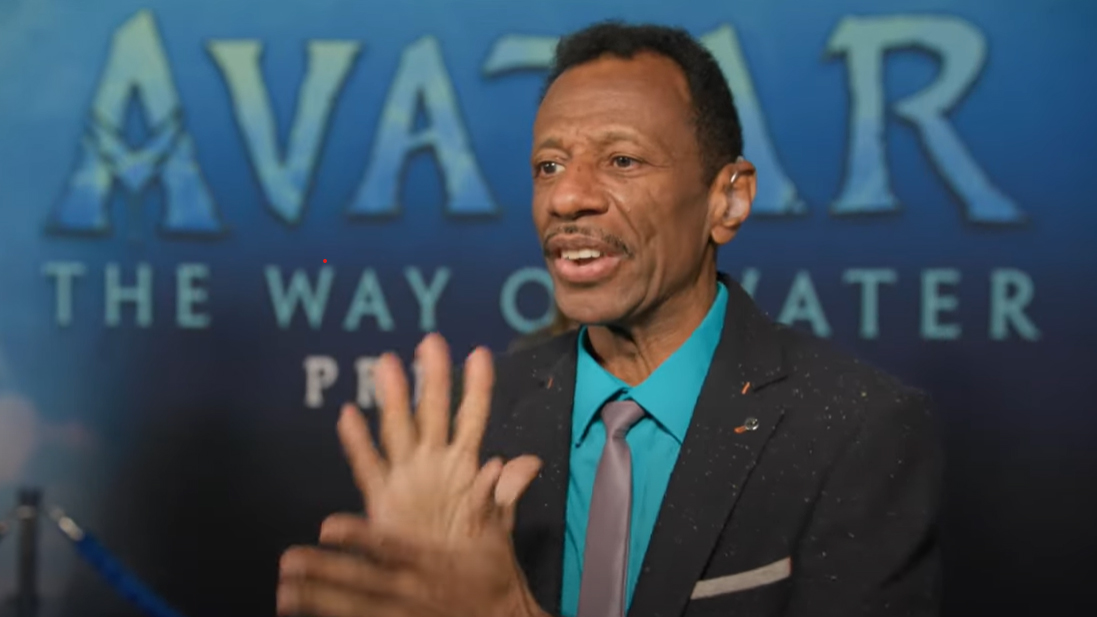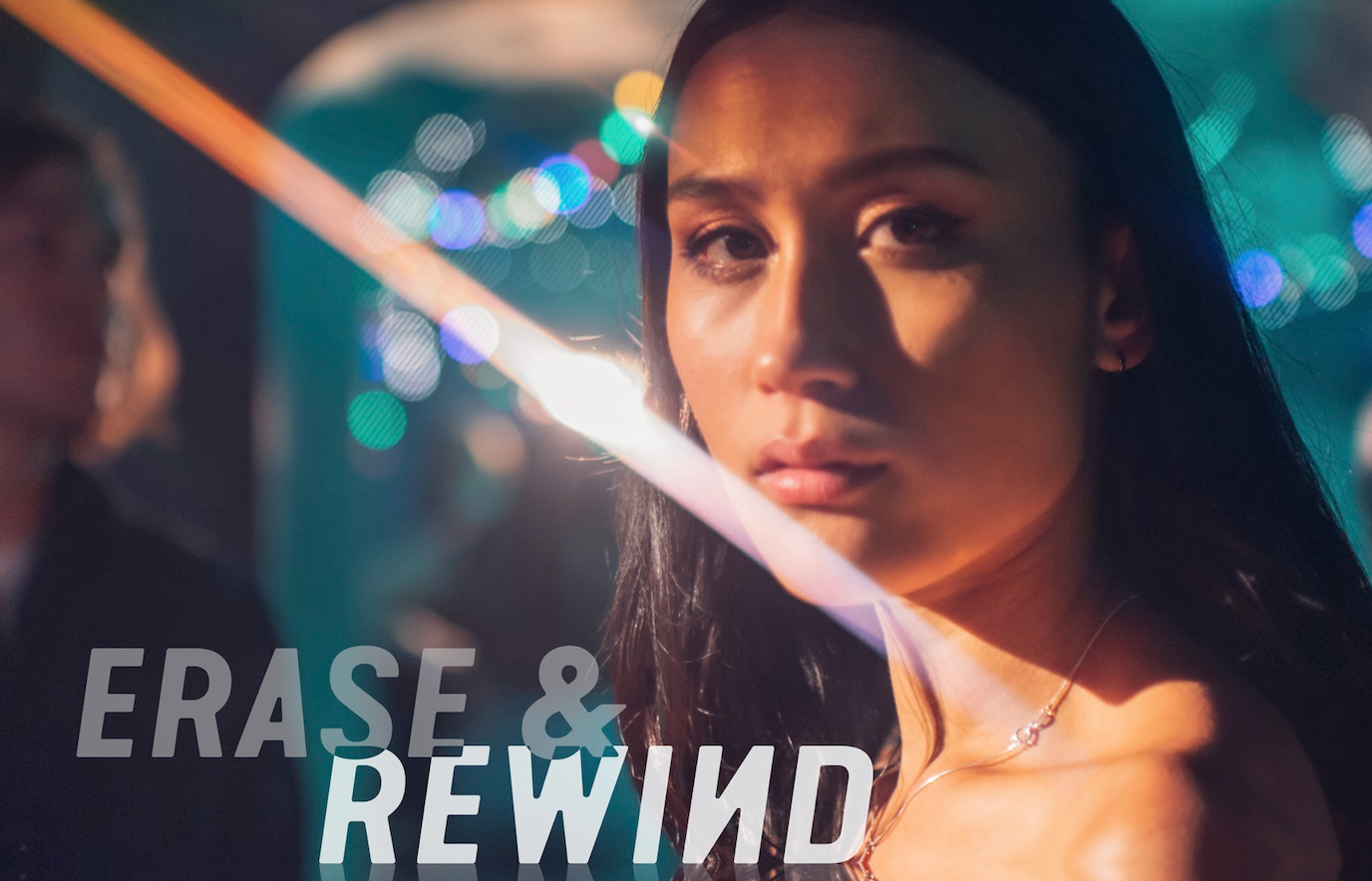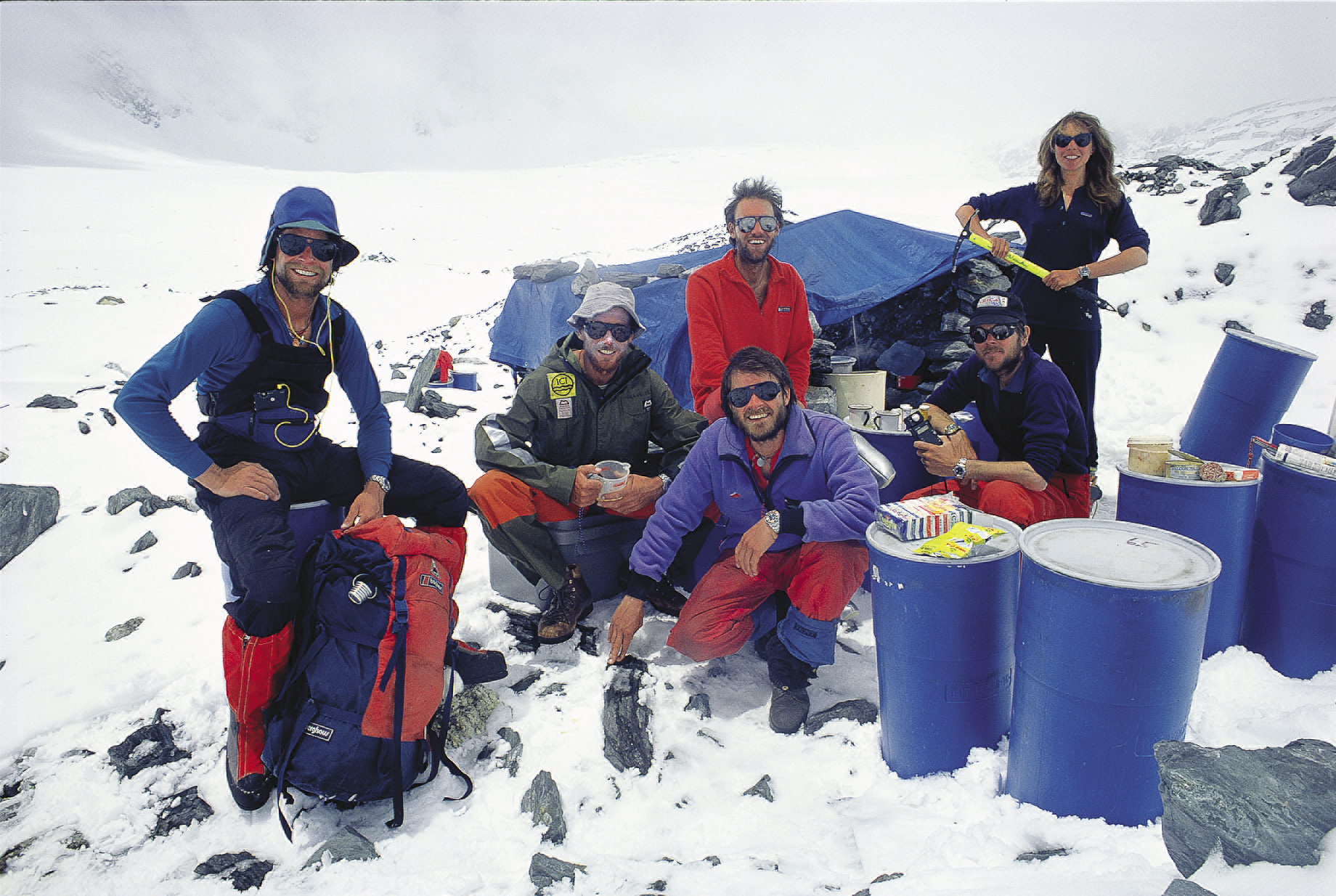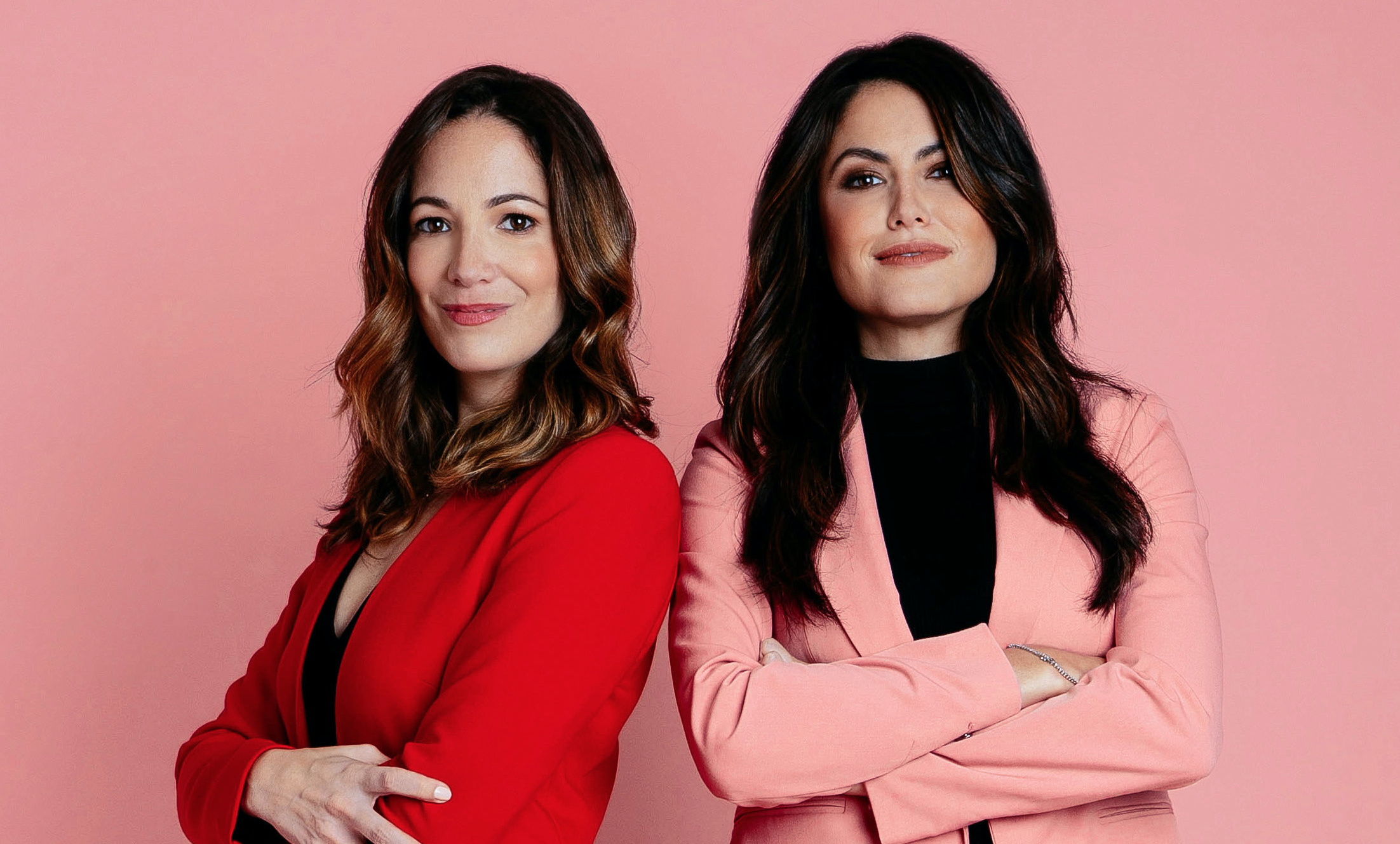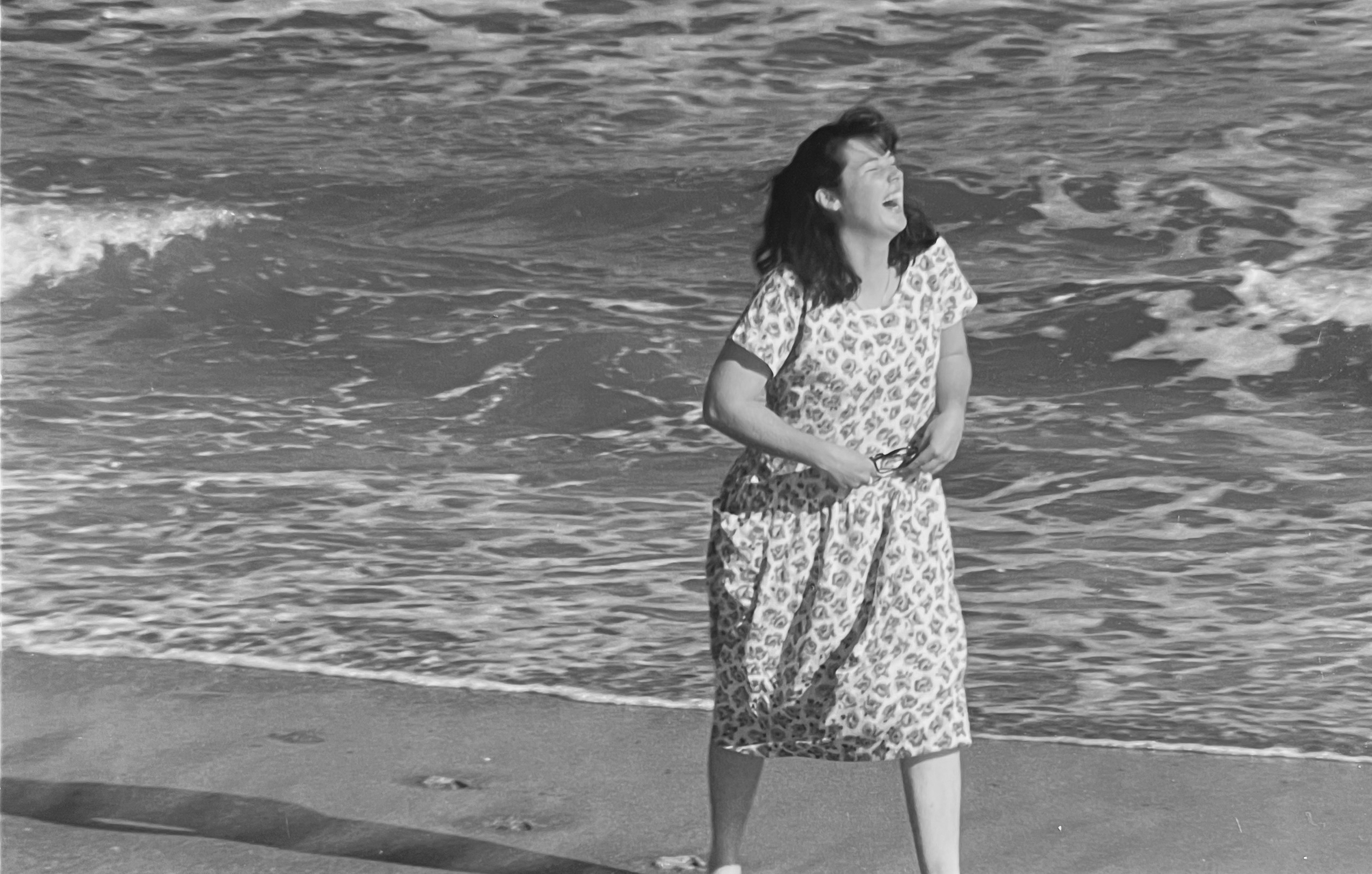
If you’ve been paying attention to what has been happening in Iran lately, whether through numerous viral social media videos or news updates, you will be familiar with the uprising of women and girls who are taking to the streets and fighting back against the regime’s oppressive Hijab mandate and numerous human rights violations.
While these issues have been happening in Iran for decades, this recent uprising was sparked by the news of the death of 22 year-old Mahsa Amini in September. She died in a hospital in Tehran, Iran, under suspicious circumstances, after being arrested for not wearing a hijab properly. Since then we have seen an incredible amount of women, girls, allies, activists pushing back, taking to the streets, demanding an end to an oppressive regime that treats women as second class citizens.
One woman who has been fighting back for years and understands the oppressive regime in a personal way, is singer and women’s rights activist Golazine, internationally know by her artist name GOLA. Despite becoming the face of the “Hijab No Hijab” movement in Iran after her self-taped and directed video for “Haghame,” meaning ‘It Is My Right,’ went viral on the National Day of Hijab in Iran, and having been arrested many times during her youth for opposing the Iranian government, the mere fact that Gola is a solo female pop singer is a severe enough crime to get her arrested and likely killed if she ever attempted to return to Iran.
In the midst of what is happening in Iran, the exiled singer has released her new album called ‘CHANGE‘ which makes a bold statement directly to Iranian women and men that speaks to the fight for gender equality in spite of the nation’s oppressive compulsory Hijab mandates and human rights violations. Having grown up in Iran and lived first hand under the oppressive weight of the Iranian government, Gola emerged as a voice for those unable to speak for themselves.
The Iranian people are suffering every day under the oppressive force of the regime, and between planned internet blackouts and disabling social media platforms, the government in Iran is doing everything in their power to maintain control and prevent community organization that goes against their oppressive laws. Known by Iranians as the Lioness of Iran, Gola irrefutably lives up to her reputation as she delivers a divine manifestation of bravery, advocacy, and justice with ‘CHANGE.’
She is simultaneously beloved by the Iranian people and outcast by the government, having been exiled from the country for over a decade, as she continues making radical statements advocating for gender equality that renounce the Iranian governments’ oppressive laws and hellish punishments inflicted upon Iranian women ready for the opportunity to experience true autonomy and the ability to forge their own destinies.
The songstress is among the first Iranian women to professionally sing in Farsi and English, as well as one of the most influential Iranian women to have been born and raised in Iran, and have a pop English track in the UK Club chart. The singer currently spends her time between Los Angeles and London while she offers her voice as a vessel to a cause far beyond herself. Working as a solo female singer in Iran is unheard of as a result of such oppressive systems; women are prohibited from singing solo in public and are limited in their freedom to use their voices to prevent immoral sensual arousal with unrelated men.
Gola and her work have caught the attention of major media outlets such as i-D, The Times and The Sunday Times UK, TMRW Magazine, and Hunger Magazine, while she continues releasing projects that amplify her mission to spread empowerment, peace, and love. Here’s our chat with the Lioness herself, who spoke about her feelings toward what is happening in Iran, and the messages in her new album.

You released your album ‘Change’ in September, not long before the news about Mahsa Amini’s tragic death. How did you feel about this news, given the message behind your album?
Shocked, but not surprised. The news of Mahsa Amini’s death really made me upset and infuriated as well. I genuinely was upset with every single human rights organization who had neglected our voice to this point. We have been fighting against compulsory hijab for many decades. Mahsa’s death and many other girl’s deaths could have been prevented if the leaders in the world didn’t work with the Islamic regime for such a long time. I was angry with those who, in the name of God, unleashed brutality on an innocent girl just for a few strands of her hair out of a scarf. What type of God is that?
Then guilt kicked in. Her death made me feel guilty. You ask yourself, “could I have done something to prevent this?” I blamed myself. I felt, “why did I wait so long to be loud about these issues internationally?” But this is what the regime does to women in Iran. They make you feel like it is your fault: you have to cover yourself so that the men are not aroused, you cannot sing publicly so it doesn’t provoke men. Being a woman is a crime in Iran – I sing about it in my song “Jorme man” (my crime). Mahsa’s death is a testimony of what I have been singing about in this album.
However, I am glad that her life was not lost in vain. Now, the world is finally seeing the true face of the Islamic Republic of Iran. In fact we’ve been trying to show the world that forced hijab is only one of the issues. There is so much more going on. Now people are facing bullets and guns in the streets of Iran protesting against many fundamental problems such as child marriage, gender inequality, unfair trials, injustice, tortures, forced confessions, no freedom of expression, corruption, and increasing poverty in a country with an abundance of natural and human resources… the list goes on.
You have been exiled from Iran for over a decade now, but refuse to back down for advocating for gender equality. Why is this important to you?
I believe at my core that without gender equality, there won’t be peace and happiness in the world. I truly believe that if we see each other equal and are provided with equal opportunity we can progress much faster, we will resolve issues that are threatening our existence quicker, and in any walk of life, or industry, achieve more. On the other hand, as someone with first hand experience, I could testify that gender inequality only brings out anger, hatred, suffering, and division.
Living in a patriarchal society ruled by a misogynist regime, I cannot describe how much I disliked wearing a scarf, but I had to wear it in order to be able to go to school when I was only 7. I was feeling hot all the time in the classroom, and it was hard for me to concentrate. If I was a boy, I wouldn’t have this problem. I loved playing football and riding my bicycle in the street, but it is forbidden for women to enjoy any of these activities in Iran. So, for a long time I pretended that I was a boy; I picked a male name for myself, I shaved my hair, and wore a shirt for as long as my body let me go ahead with this new identity. I loved my hair, but my freedom meant more to me than my actual gender identity.
Then, at an older age, I began exploring my passions and ended up pursuing a profession that happened to be taboo for women: music and singing. Women are not allowed to sing in public or release songs in Iran. I had to work with my family for months to be able to study music in the university. Naturally, they believed there was no future for a female musician/singer in Iran, and they were right (for the time being, I really believe a big change is on the way). I loved singing, and the only way I could go on the stage was either by being in a choir so that my voice is not clearly heard, or recording my voice in some so-called “underground studios”, and keeping the song to myself. If my music leaked, I could face arrest, jail time, and perhaps torture.
So you see, gender inequality never made any sense to me. Why would a group of people who happen to be men be made to think they have every right to rule over everyone else?
What were some of the things you experienced as an outspoken woman in Iran before having to leave?
I was asked to leave the classroom many times by my religion teachers in primary school and high school. Many of the religion professors at the university didn’t even let me attend the exams and pushed me to retake the module the next term. I was outcast just because I was questioning them about the rules and limitations around women. I experienced arrests, jail, I was beaten, harassed, and degraded, and once, a morality police officer broke my arm. Any time a letter came to our door I thought it was a subpoena. My performances with a group of male singers were interrupted. This followed me even after my departure.
Once, a famous music band from Iran was supposed to perform in London, and I was rehearsing with them for months over Skype to sing on behalf of one of their male singers, as he could not leave the country due to his unfinished compulsory military service. The night before the concert, the organizer received an order from Iran that I could not go on stage with them, and if they did not follow the order, they would face charges on their arrival in Iran.
The patriarchy is pretty good at making women who don’t fit in feel terrible. It’s the norm! Reflecting on all of this, I am especially grateful for the female focused record label ZAN Recordings that I released the album under. The label has a mission that is very close to my heart with the goal being to support and guide female musicians from around the world – especially from the middle east – in their journey to breaking through in the music industry.
Like your reputation as a “lioness”, and the lyrics in many of your songs, we are encouraged by the resilient spirit of Iranian women. What can you share about this, as more people pay attention to what they see on social media right now?
Their bravery is beyond belief, I have nothing but admiration for them. Their resilience is the reason this movement started and is still happening as I write this. For more than 40 years, the world thought Iranian women were obedient, docile, that they will do as they are told, that they are tamed by men to stay in the kitchen and raise kids. No my friend, each of us has a story of resilience and resistance. Each of us has suffered one way or another. Now we are together, we have had enough, we will change the destiny of our country and for the generation to come.
We always thought the world would eventually help us, but we were disappointed many times. For instance, the sanctions against Iran not only did not help us, but fueled the corruption, and inevitably, tightened the grip of the ruling minority over the country. Our people paid the price, and the regime just got richer and more powerful in the name of “resisting the sanctions.”
Or things like giving honorary citizenship to Mahsa Amini after her death from France; what problem does it really solve? It is a nice gesture, but where is the real action? Who does that affect? Iranian women and girls know better. They have learned over time not to give in to empty promises. They are taking their destinies into their own hands as they have nothing else to lose, and as president Roosevelt said “They fight to end conquest, they fight to liberate!”
The Iranian resistance needs to be heard so that the other governments feel pressured from their people to stop working with the regime, especially when it comes to trading oil; it only enriches the regime. The world powers must hold strong against convening with the Iranian regime in order to stop sabotaging our fight for freedom.
Women have often been the instigators of change and movements for social progress around the world. What kind of impact do you think the current protests will have in Iran?
These protests are taking us towards a more progressive and secular government that respects human rights and human dignity above any ideology! I’d like to add that in a bigger picture, these protestors will have a more universal impact as example and role models, because of the courage and agency of these young women and men against brutal, ruthless, and violent reactions from the regime.
We all know that the Islamic Republic of Iran feeds, encourages, and supports the terrorism around the world. We are not the Islamic Republic of Iran, and for years we’ve been imprisoned by a brutal, ruling minority in our own country. I believe, their audacity and selflessness to fight the dictatorship with all its cost, is not only for themselves, but for generations to come, and also a great example of courage for the rest of us to take back our rights from whomever wants to take us to the dark ages.
They started these protests because they were denied their most basic rights. Our noise is getting so loud that the leaders of other countries eventually cannot deny it, and must adjust their strategy away from collaborating with this bloodthirsty regime.
I think what is happening in Iran must also be a wake up call for the world. People must question their leaders if they are working with Iran and have ties with them. How can countries who promote human rights and equality shake hands with one of the most ferocious regimes in the world? If you turn a blind eye to the beating and killing of girls in their schools (that just happened in Ardebil in Iran), you’re ignoring a problem that sooner or later will land on your own doorstep. The regime who kills children as young as 11 years old – Javad Pousheh was shot in the back of his head with live ammunition – to cling to power, is capable of destroying the whole world, no matter where you are!
During times of unrest, we often turn to artists and musicians to help us make sense of the world around us. What do you hope Iranian women, as well as everyone else, will take to heart from ‘Change’?
Music is a very strong medium. In almost all of the social/civil movements, and the revolutions in history, music has played an important role. I hope “Change” can give my Iranian brothers and sisters a little hope and encouragement when they need them to face such a monstrous adversary.
The main chorus of “Ma Ziadim” says:
You are done for, we are many
We are restless like a volcano
The roar of the flood and the fury of the wind
Your bullets are few, we are many
For those women who are facing guns and bullets for freedom, equality and human dignity, I want them to know that they are not alone, I’d love to make them feel empowered and united if I can. We are many, we are all together in this and the world is gradually joining us! For years we have been degraded, humiliated, abused, disrespected, and this is the time to take back our power and accept and celebrate ourselves and be blunt with the dictator and dictator wannabes. We all know it’s their time to go, and we want them to know that too.
The end part of my Song “Haghame” says:
Don’t you threaten me
This is me, this is who I am
Your time is over
And I can see the day
I hope by listening to my music and reading its lyrics, people can feel what we have gone through as women, and as a nation, in the past; I want them to hear our truth through music. “Change” is my feeling towards what I experienced in the past and what I hope to see in my country in the future.
This is what I talk about at the end of “Khodam Boodam Oonja” (I Was There):
Once again, we shall blossom and leave the cold behind
The darkness will fade, there won’t be any cold nights
The sun will rise again, once and for all
The album comes with a booklet that has some illustrations. We have two characters there, a monster who is the symbol of patriarchal theocracy, dictatorship, and suppression. The little girl, on the other hand, is the symbol of the suppressed Iranians seeking change and fighting for freedom.
“Change” is the soundtrack of our journey to justice. You can feel all sorts of emotions from sadness, to anger, helplessness, courage, hope and victory! The victory is sweet, and that is what we will experience when the change we are fighting for is generated.
The pressure on women to be “polite” and follow rules set out by patriarchal ideas is universal. In your opinion, why is it important to push back on the forces that try to keep us “in our place”?
Actually, it is not our place. They want to put us in the place where they feel most comfortable keeping us; they want to take us back to where they used to haveprivilege (when oppressors face equality, they feel oppressed). The real place for women is where we as women and as individuals can choose how to behave, what to say, how to sit, what to wear, and how loud we can talk or laugh!
The only way to get to the middle point, which is where we have equal rights, is to push back until the balance is found. It can only happen when we do not accept the patriarchy’s norm. For a long time, we have been programmed to not even notice that we are obeying the oppressor’s rules. Behaving the way we are “supposed” to by being an incubator and housewife. The first step towards gender equality is to recognize these sorts of labels and archetypes that have been seeded in us by the hegemonic society, and fight back.
In fact, “polite” means something different in America than in Iran. So what is it to be “polite?” The answer is wherever you are, be you, and do not let the generalized rules of that country, that time in history, or that society rule your life.
Be aware, be politically active. Seek the truth and take part in social and political movements. Let’s shape the world for the better.
What was the most difficult or challenging song to write on ‘Change’?
The most challenging song to write was “Behtarin Abi.” I wrote it in honor of Sahar Khodayari. It is strictly forbidden for women to attend football matches. In 2019, Sahar Khodayari was sentenced to prison for trying to enter a stadium while disguised as a man. In protest at her sentence, she set herself alight outside the courtroom, dying of her injuries a week later. She was known as Blue Girl, after the color of her club, Esteghlal F.C. I couldn’t stop my tears from falling while writing the lyrics for her, and also while recording the song in the studio. I felt her pain deeply; I am also a big football fan and tried to get to the stadiums to watch. It could easily have been me instead of her being arrested. I am lucky I am here today.
While women in America are seeing a lot of our reproductive rights being stripped away, women in Iran are also fighting for the freedom to choose what to wear and how to live their lives. What do you think we can learn from each other in these times of change?
I think it is so important to understand that if we do not speak up and choose, they will choose for us! We are in a very critical time in history. I can not imagine that in a developed country, a woman in Texas does not have the right to choose to go ahead with an abortion, even in cases of rape and incest. The reality is that from Iran to the United States, we are fighting for the same thing, “My Body, MY Choice.” Our rights over our bodies have been taken away from us. This is a controlling behavior; same principle, different execution.
The upcoming midterm election is very important for this generation as well as the future generations in America, so please vote. A wrong step can take us back a hundred years; this is what happened to us in Iran after the revolution of 1979. Our parents made a big mistake, and now they may not even be in this world to see us dying on the streets of Iran as the result of their poor decisions. What we are doing today in Iran and America will either make or break the future generations, as well as the future civilizations of this planet. Every step counts: it either takes us forward or back.
We may not be able to fix all the issues at once, but we can at least contribute to the resistance. We can chip away at the problem bit by bit to reverse this regression. If we fight now, take our power back, and reach democracy, we can predict to have a peaceful planet in the future. But if we do not act, we will be giving in to authoritarianism, and that comes with injustice, war, and darkness. Right now, we are witnessing what dictators are capable of, from Iran to Russia! The moral arc of history bends towards justice, as MLK said. But it is us who have to do the bending, We the people!
When people listen to ‘Change’, what do you want them to learn or remember most?
What you are listening to is the story of many women, men, girls, and boys who share so many dreams with you. They fall in love, they feel pain, they enjoy music, and like you, they crave the taste of freedom too. Remember that we are not giving in, and with our bare hands we are fighting one of the most brutal regimes in this world for change. Remember that we love you, and we cannot wait for a borderless world to become united and hug each other. Hear our voice and be our voice!
You can download and stream ‘Change’ by clicking HERE. Follow Gola on Instagram and Spotify.












